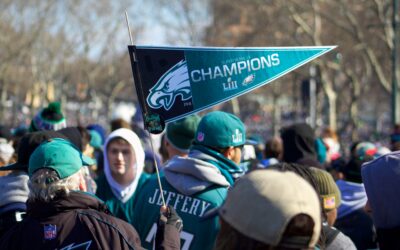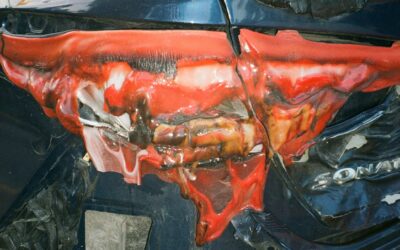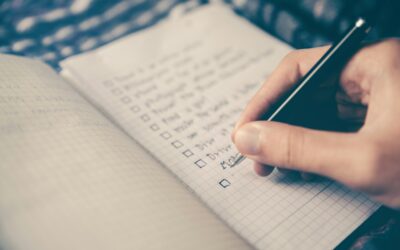College and pro game days pack Georgia’s roads with fans, rideshares, delivery drivers, and out-of-towners who don’t know the turns. Around stadiums and arenas—Mercedes-Benz Stadium, Truist Park, Bobby Dodd, Athens on Saturdays—you’ll see sudden lane changes, last-second exits, gridlocked intersections, and crowded pedestrian crossings. Add dusk kickoffs, rain showers, and post-game celebrations, and crash risk climbs fast. If a game day wreck or parking-lot incident leaves you injured, the steps you take in the first 24–48 hours can protect your health and your Georgia personal injury claim.
Why game days are uniquely risky
Stadium traffic disrupts normal patterns. Temporary police control, cones, and blocked turns force unfamiliar routes. Fans follow GPS blindly and cut across lanes to reach designated lots. Rideshare zones create stop-and-go pockets where drivers stare at apps instead of the road. After the game, fatigue, alcohol, and “beat the traffic” urgency produce aggressive merges, tailgating, and red-light rushes. Even at “low speeds” near the stadium, impacts can cause concussions, whiplash, shoulder and knee injuries, fractures, and significant property damage. Pedestrians and e-scooter riders face special risk in the dark when drivers inch through crowds or roll right on red while watching for other cars instead of people.
Fault still applies—even in chaos
Georgia is a fault state. Every driver must operate safely for conditions—slowing in congestion and rain, increasing following distance, yielding to pedestrians in crosswalks, using headlights at dusk, and avoiding distraction. “I was following GPS” or “traffic was crazy” doesn’t excuse speeding, unsafe lane changes, or rolling a stop into a crosswalk. If a company vehicle or rideshare is involved, the employer or platform’s commercial coverage may apply depending on trip status and contracts. In limited cases, premises owners or event operators can share responsibility for foreseeable hazards in lots and walkways (poor lighting, missing traffic control, unaddressed potholes or oil slicks), but those claims are fact-specific and time-sensitive.
What to do after a game day crash or parking-lot incident
- Call 911 and get checked out. Concussion and neck/back symptoms often appear hours later. Early medical records tie your injuries to the incident.
- Document the scene before it shifts. Photograph vehicle positions, damage, lane markings, cones, police-directed traffic patterns, “Lot Full” signs, and any blocked turns. In lots, capture lighting, surface hazards, wheel stops, curbs, and sight lines.
- Identify the context. Note the event (team, kickoff time), your approach route, weather, and sun position. Take shots showing crowds, rideshare signage, and crosswalks.
- Collect witness info. Fans, vendors, attendants, and officers often see the crucial moment—unsafe merge, phone in hand, rolling stop, or failure to yield. Get names and phone numbers.
- Ask for video. Stadiums, lots, nearby businesses, and homes frequently have cameras. Request preservation immediately; footage is often overwritten within days. Save your dash-cam files.
- Capture platform and policy details. If rideshare is involved, screenshot the trip screen with timestamps. For deliveries, photograph vehicle logos and ID numbers.
- Notify insurers—carefully. Provide the basics. Decline recorded statements and don’t guess about speed or fault until you’ve spoken with an attorney.
- Follow treatment plans. Keep all appointments, therapy visits, and receipts; consistent care strengthens your Georgia injury claim.
Parking-lot and pedestrian injuries near stadiums
Lots and surrounding sidewalks are high-risk zones after dark. Premises owners must take reasonable steps to keep areas safe: lighting that works, clear pedestrian routes, attention to tripping hazards, and traffic control when crowds predictably surge. If you trip on a broken curb, slip on an oily surface, or get struck in a poorly managed crossing, report the incident in writing, ask for an incident number, and photograph the hazard before it’s cleaned or the cones move. Keep your shoes and clothing; they can show residue or damage that helps prove how the injury occurred.
Rideshare and delivery crashes on game day
Coverage depends on app status and whether the driver is en route or has a passenger. There may be layered policies: the driver’s personal auto coverage, the rideshare/delivery platform’s contingent or primary commercial coverage, and—when applicable—your UM/UIM (uninsured/underinsured motorist) policy. Identifying which policy applies at each moment is critical and can significantly increase the available recovery.
Common injuries and recoverable damages
Game day collisions often lead to whiplash and herniated discs, concussions with headaches and light sensitivity, shoulder and knee injuries from bracing, fractures, and psychological distress, especially around crowds and night driving. A Georgia claim can seek compensation for ER and follow-up care, imaging and therapy, future medical needs, lost wages or reduced earning capacity, pain and suffering, and vehicle repair or total loss. You can also recover for necessary replacements—child car seats, prescriptions, glasses, phones, or laptops damaged in the wreck. In reckless cases—DUI, racing, or blasting through pedestrian flow—punitive damages may be available to deter similar conduct.
Insurance to lean on right away
- Medical payments (MedPay): Can help with immediate bills regardless of fault.
- UM/UIM: Crucial if the at-fault driver has minimal insurance or flees.
- Health insurance: Covers ongoing treatment while liability is sorted out. Bring every policy card to your consultation so nothing is missed.
Prevention tips for game days
Leave early, expect blocked turns, and program your exit route before you park. Use headlights in rain or dusk and keep windshields clean inside and out. Give pedestrians the right of way and avoid right-on-red where crowds cross. In lots, slow to walking speed, skip the shortcuts over curbs, and watch for scooters and strollers. After the game, resist the urge to “beat traffic”—one bad decision can change someone’s season.
How Gunn Law Group proves game day negligence
We move fast to capture what vanishes first: CCTV and doorbell video, 911 audio and officer body-cam, traffic-control setups, and event-data recorder downloads showing speed and braking. We secure rideshare or delivery trip data, analyze lighting and signage, and coordinate with your medical providers to document the full impact on your life. Then we identify every available policy—personal, commercial, and your UM/UIM—and negotiate with each insurer to pursue the maximum compensation Georgia law allows.
If a stadium trip turned into a tow truck and a stack of bills, don’t go it alone. Need a home run? Call the Big Gunn at 888-BIG-GUNN for a free case review with an Atlanta personal injury lawyer who knows how to win game day claims.




